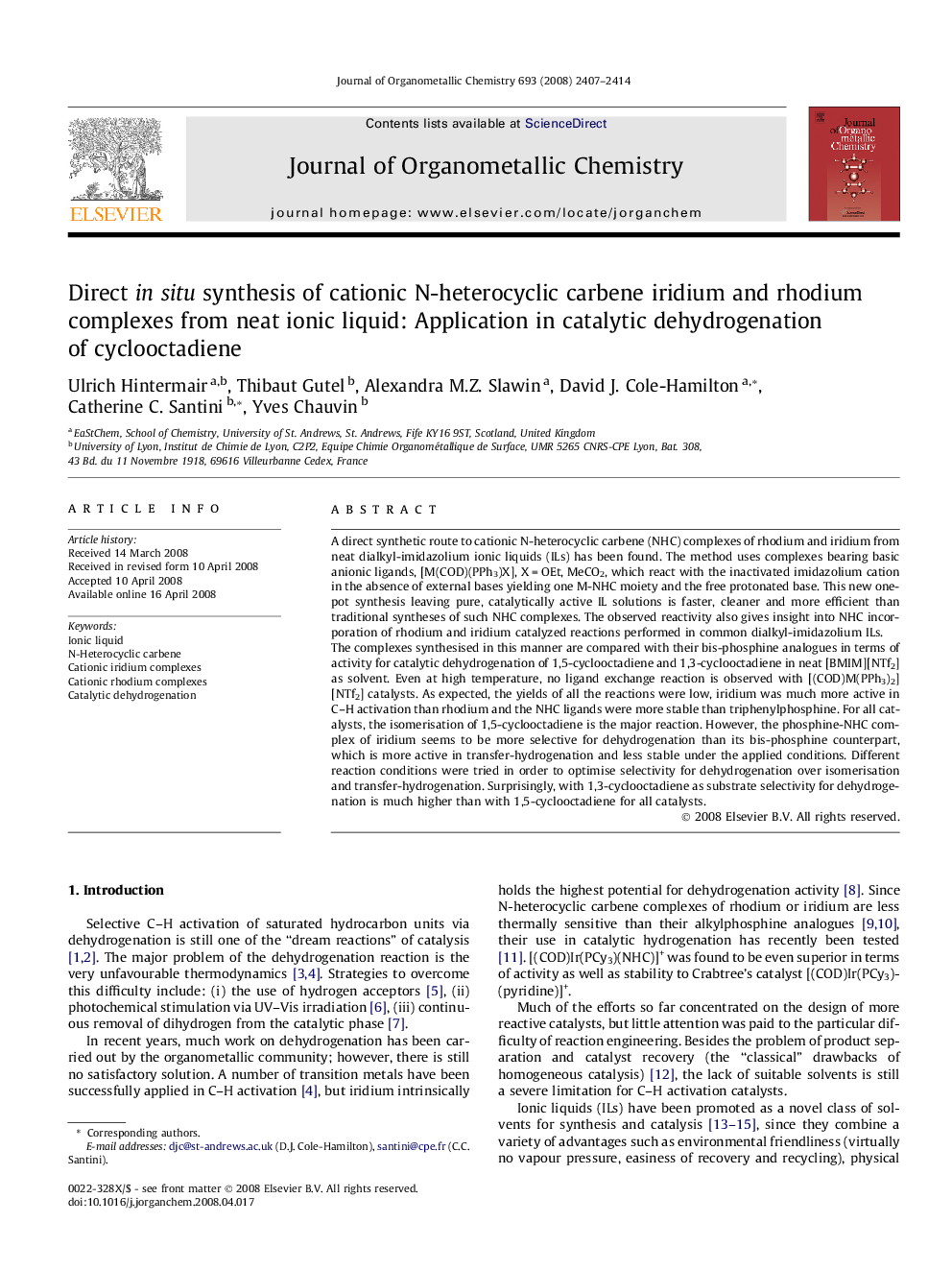| Article ID | Journal | Published Year | Pages | File Type |
|---|---|---|---|---|
| 1323084 | Journal of Organometallic Chemistry | 2008 | 8 Pages |
A direct synthetic route to cationic N-heterocyclic carbene (NHC) complexes of rhodium and iridium from neat dialkyl-imidazolium ionic liquids (ILs) has been found. The method uses complexes bearing basic anionic ligands, [M(COD)(PPh3)X], X = OEt, MeCO2, which react with the inactivated imidazolium cation in the absence of external bases yielding one M-NHC moiety and the free protonated base. This new one-pot synthesis leaving pure, catalytically active IL solutions is faster, cleaner and more efficient than traditional syntheses of such NHC complexes. The observed reactivity also gives insight into NHC incorporation of rhodium and iridium catalyzed reactions performed in common dialkyl-imidazolium ILs.The complexes synthesised in this manner are compared with their bis-phosphine analogues in terms of activity for catalytic dehydrogenation of 1,5-cyclooctadiene and 1,3-cyclooctadiene in neat [BMIM][NTf2] as solvent. Even at high temperature, no ligand exchange reaction is observed with [(COD)M(PPh3)2] [NTf2] catalysts. As expected, the yields of all the reactions were low, iridium was much more active in C–H activation than rhodium and the NHC ligands were more stable than triphenylphosphine. For all catalysts, the isomerisation of 1,5-cyclooctadiene is the major reaction. However, the phosphine-NHC complex of iridium seems to be more selective for dehydrogenation than its bis-phosphine counterpart, which is more active in transfer-hydrogenation and less stable under the applied conditions. Different reaction conditions were tried in order to optimise selectivity for dehydrogenation over isomerisation and transfer-hydrogenation. Surprisingly, with 1,3-cyclooctadiene as substrate selectivity for dehydrogenation is much higher than with 1,5-cyclooctadiene for all catalysts.
Graphical abstractA new one-pot synthesis of cationic N-heterocyclic carbene (NHC) complexes of rhodium and iridium from neat dialkyl-imidazolium ionic liquids (ILs) in the absence of external bases, leaves pure, catalytically active IL solutions faster, cleaner and more efficient than traditional syntheses of such NHC complexes.Figure optionsDownload full-size imageDownload as PowerPoint slide
